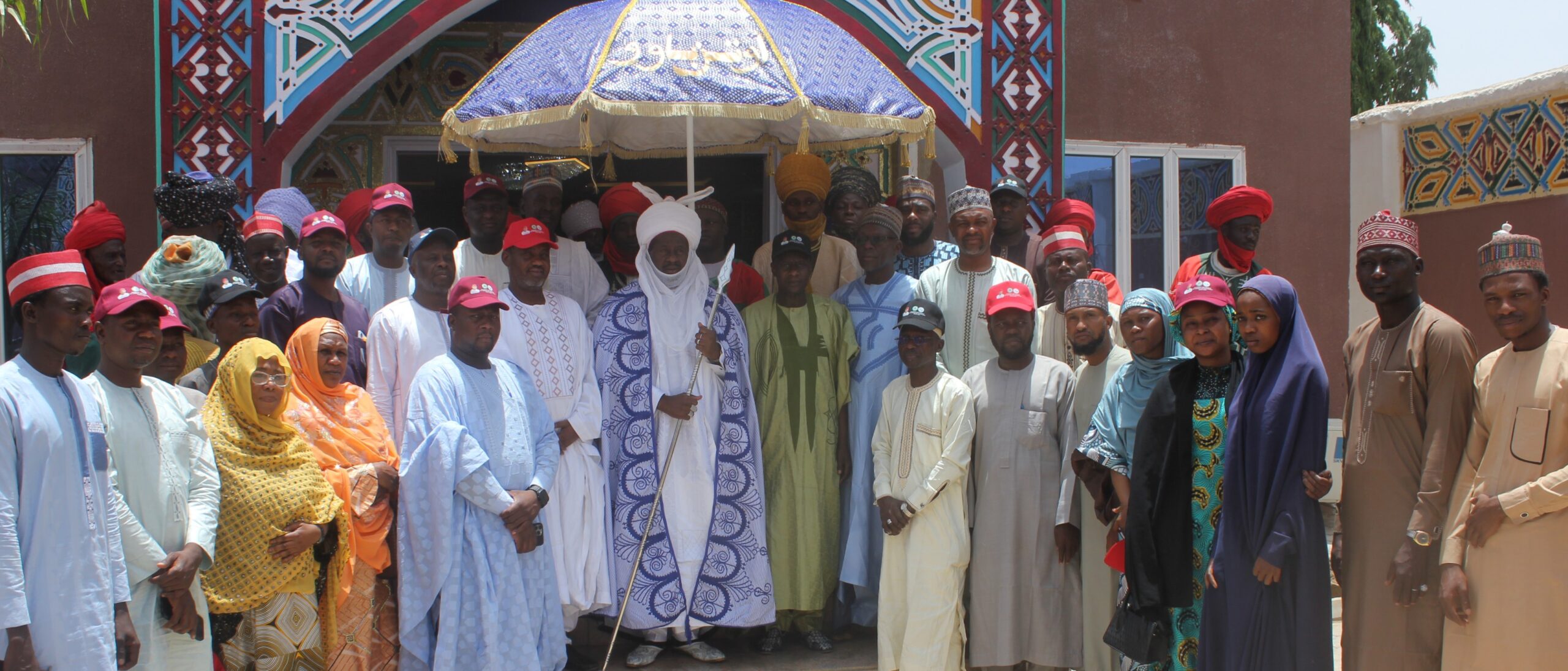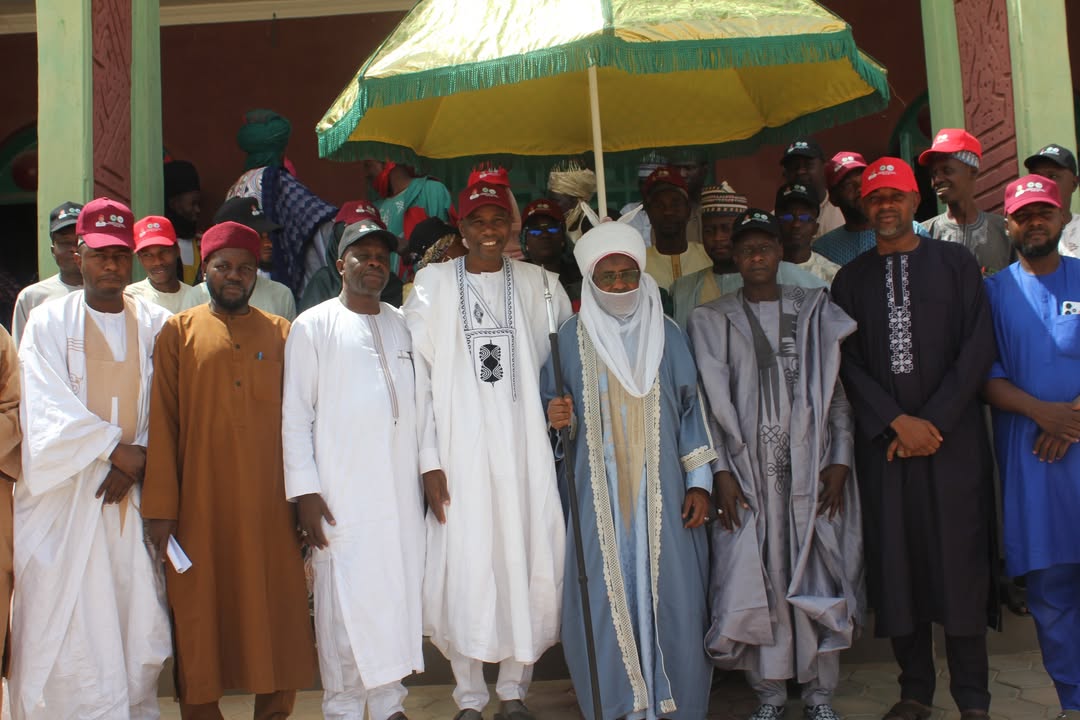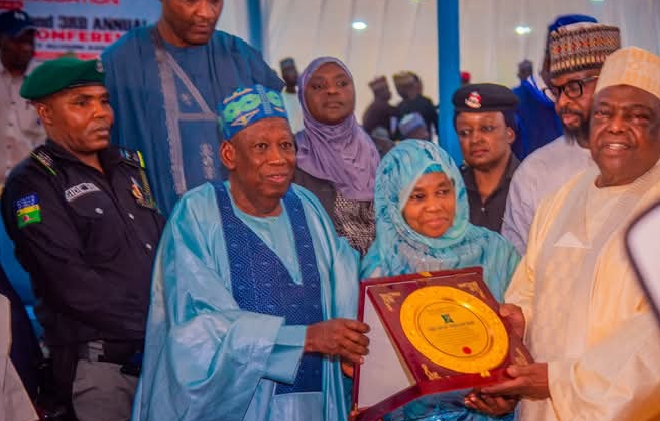Headlines
Kano is becoming one of Nigeria’s biggest startup cities

Nasiru Yusuf Ibrahim
This year, Kano entered the list of top 1,000 startup cities in the world for the first time. In the past four years, the city, known as the commercial capital of northern Nigeria, has seen a spike in startup activities, owing to the success of pioneer tech entrepreneurs and a buzzing tech community.
KANO FOCUS reports that in 2016, a group of four young people collaborated to build one of the first tech incubation hubs in Kano, they had no idea that this singular goal to participate in the tech revolution happening in the country would become the foundation of the state’s tech ecosystem. In eight years, this hub, Startup Kano, has become one of the biggest in the northern region and the entry-point into tech for over 50,000 youth in Kano, helping early-stage entrepreneurs raise over $1 million for their tech-enabled businesses.
A tech ecosystem in Kano is vastly different from ones in other parts of the country, like Lagos or Enugu, and while the growth of the former might have inspired Kano, that didn’t make building any easier.

According to Aisha Tofa, co-founder of Startup Kano, there was no blueprint for them in the beginning as the environments were severely different. There was zero tech awareness in Kano communities, and despite its deep entrepreneurial culture, the concept of investing in technology rather than actual brick-and-mortar businesses was still largely absurd.
“People understood technology only to the extent of using social media platforms like Facebook,” she said. “Anything outside that and they didn’t trust it.”
It took years of radical tech evangelism to draw the interest of young people, and subsequently investors. Now, the state has become one of the top six tech ecosystems in the country, with the most number of startups in northern Nigeria.
According to Tofa, what is responsible for the recent push for the tech entrepreneurs in Kano is witnessing the potential of technology for their counterparts in the north.
“At first, people didn’t even try. They simply believed that their startups wouldn’t get enough funding or traction for the single reason that they were from the north and not Lagos,” she said. “But when they started to see other founders like them in the northern region who worked hard and got rewarded for it, then they woke up.”
In 2022, a mobility startup founded by Kano-born Khalil Halilu won $8,000 for the mobility and smart city category during a GITEX Pitch competition. That same year, another northern startup, Sudo Africa, raised $3.37 million in pre-seed funding. From 2021 to 2024, the number of tech startups in Kano has jumped from five to about sixty.
Funding has always been regarded as the principal obstacle to growth in the Nigerian tech space, more so in emerging ecosystems like Kano. In 2023, we wrote that only about 6% of tech founders from the entire northern region had access to venture capital funding.
Tofa has a differing opinion. She believes that for an ecosystem like Kano, there are still foundational challenges that still need to be gotten right, like education, mentorship, and creating the right market.
“There’s a huge gap between the training and impact we see in the ecosystem at the moment. A lot of us are still using the templates from other places to train Kano youth, and it’s not the right fit,” she said. “Funding is important, but the things we do before getting to where we need funding should also be focused on.”
According to another co-founder of Startup Kano, who’d like to not be mentioned, Kano is different and the ecosystem has to adapt to the cultural context of the city to be successful.
“When we pitch tech startups as something entirely separate from the regular businesses they’re used to, then it’s even more difficult to work with,” they said. “Startups are basically businesses, which is what we know here [in Kano] and how we ought to operate.”
The co-founder, who now bootstraps their own tech-enabled business, shared that funding isn’t as important to them now as finding the market for their product.
“Before thinking about raising money from investors, I’m already thinking about how to sell and make my profits directly from my customers, which is exactly how my own fathers did business,” they said.
A lot of things have changed in Kano in the past few years. Beyond an increased number of startups, there are also more incubation hubs, willing investors in the city, and increased interest.
“While building is still difficult, it is definitely not as difficult as it was four years ago because there are more resources to help you now,” the anonymous co-founder said. “Global organisations, the government, and even private individuals have seen what’s possible in Kano and want to be a part of it.”
Ahmed Idris, founder of Enovate Labs, a non-profit focused on driving innovation, warned that the buzz in the ecosystem shouldn’t be confused with a big change and there’s still work to be done.
“The ecosystem is largely still as small as it was years ago, but we’ve seen some unique cases of people and startups who’ve managed to do great stuff,” he said.
Source: TechCabal.

Headlines
Emir of Rano lauds AGILE for educational intervention

Aminu Abdullahi
The adolescent girls initiative for learning and empowerment AGILE has been described as a major catalyst to educational development.

KANO FOCUS reports that the Emir of Rano, Alhaji Muhammad Isa Umaru, made the indication while receiving AGILE team in his palace.
According to him, Kano has witnessed significant progress in girl child education facilitated by AGILE, hence the need for traditional institutions and relevant stakeholders to contribute their quota to achieve the desired objectives.
He noted that, Rano Emirate has been at the forefront of ensuring enrollment retention and completion of girls education through various initiatives.
The emir called on the Adolescent Girls Initiative for Learning and Empowerment (AGILE) to upgrade the girls school in his community.
The monarch said, the school, located beside the palace, requires expansion to accommodate a larger number of students.
The traditional ruler suggested that AGILE should visit the school to assess its condition, saying that, relocating the school to a bigger location had been earlier considered.
In his remarks the permanent secretary Kano state ministry of education Alhaji Bashir Baffa explained that, they were at the palace to seek for support and blessings form the royal father.
He said, AGILE has fostered an enabling environment for girls through promoting behavioral changes through communication campaigns engagement with traditional rulers and advocacy.
He maintained that, the team has embarked on advocacy visits to all relevant stakeholders at community and state levels on the importance of girls education.
Alhaji Baffa hinted that the state government had declared a state of emergency on education, hence the need for the traditional institution to contribute its quota to achieve the desired objectives.
He posited that, the team will visit the school to see possible ways of intervening for the development of education.
The permanent secretary also used the opportunity to condole Rano emirate over the killing of its indigenes in Uromi.
KANO FOCUS reports that, earlier the team has paid a similar visit to Karaye Emirate council as part of efforts to advocate for support from the traditional institution and relevant stakeholders.

Headlines
Kano AGILE renovates 1,300 schools, enrolls 30,000 girls in three years

Aminu Abdullahi Ibrahim
The Kano State Ministry of Education’s Adolescent Girls Initiative for Learning and Empowerment (AGILE) Project, supported by the World Bank, has successfully renovated over 1,300 senior and junior secondary schools in the state in the last three years.
KANO FOCUS reports that the state commissioner for education, Alhaji Ali Haruna Makoda, disclosed this during a visit to the Karaye Emirate on Tuesday.

He added that the AGILE program has enrolled more than 30,000 girls through targeted outreach, grants, and its Second Chance education initiative.
Makoda further revealed that the state government has finalized plan to construct 130 new schools in rural communities, with over 35,000 girls already benefiting from financial assistance under the scheme.
He urged the Karaye Emirate to lend full support to the program and prioritize girls’ education.
In his remarks, the Emir of Karaye, Alhaji Muhammad Maharaz, pledged the emirate’s commitment to advancing girls’ education in Kano State.
He commended the state government and the commissioner for their dedication to the programme’s success.
“It is our collective responsibility to support this initiative,” the Emir stated, calling for measures to ensure beneficiaries complete their education with strong academic outcomes.
The commissioner’s delegation consist of the Kano State AGILE Project Coordinator, Malam Mujitapha Aminu and other members of State Programme Implementation Unit (SPIU).

Headlines
BUK Faculty of Education celebrates 50 years anniversary, launches Alumni Association

Aminu Abdullahi Ibrahim
Bayero University Kano (BUK) on Monday celebrated the 50th anniversary of its Faculty of Education and inaugurated its Alumni Association at the Convocation Arena of the university’s new campus.

KANO FOCUS reports that the event was graced by government officials, education stakeholders, and alumni all gathered to commemorate the faculty’s contributions to Nigeria’s educational sector.
In her keynote address, the State Minister for Education, Mrs. Suwaiba Sa’id Ahmad announced the Federal Government’s Sector Renewal Initiative designed to transition Nigeria from a resource-based to a knowledge-based economy.
She highlighted that the aim of the renewal initiative consists of – Reducing the number of out-of-school children; combating learning poverty; nhancing skills development and human capital for the labor market
The minister noted that the initiative prioritizes Technical and Vocational Education and Training (TVET); Science, Technology, Engineering, and Mathematics (STEM); Digital literacy and education quality assurance.
Mrs. Ahmad disclosed that the Federal Government had disbursed ₦35 billion to 261 beneficiaries under the Nigerian Education Loan Fund (NELFUND), with BUK among the top beneficiaries.
“So far, the scheme has received 420 applications, and we are scaling up investments,” she stated.
She further confirmed that President Bola Ahmed Tinubu approved ₦120 billion to boost TVET programs, with plans to train 650 youths in technical, vocational, and digital skills over the next two years.
Emeritus Professor Sani Ahmad Sufi, former Permanent Secretary of the Ministry of Education, praised the faculty for its high-quality graduates.
“Our pride lies not just in the number of graduates produced yearly, but in their impact across Nigeria and beyond,” he said.
He added that the faculty has produced Nigeria’s largest pool of graduate teachers many of whom hold key positions nationally and internationally.
The National Chairman of the All Progressives Congress (APC), Dr. Abdullahi Umar Ganduje applauded the faculty for its significant role in advancing education in Nigeria.
The event concluded with awards presented to distinguished alumni and supporters of the faculty in recognition of their contributions to its growth.














